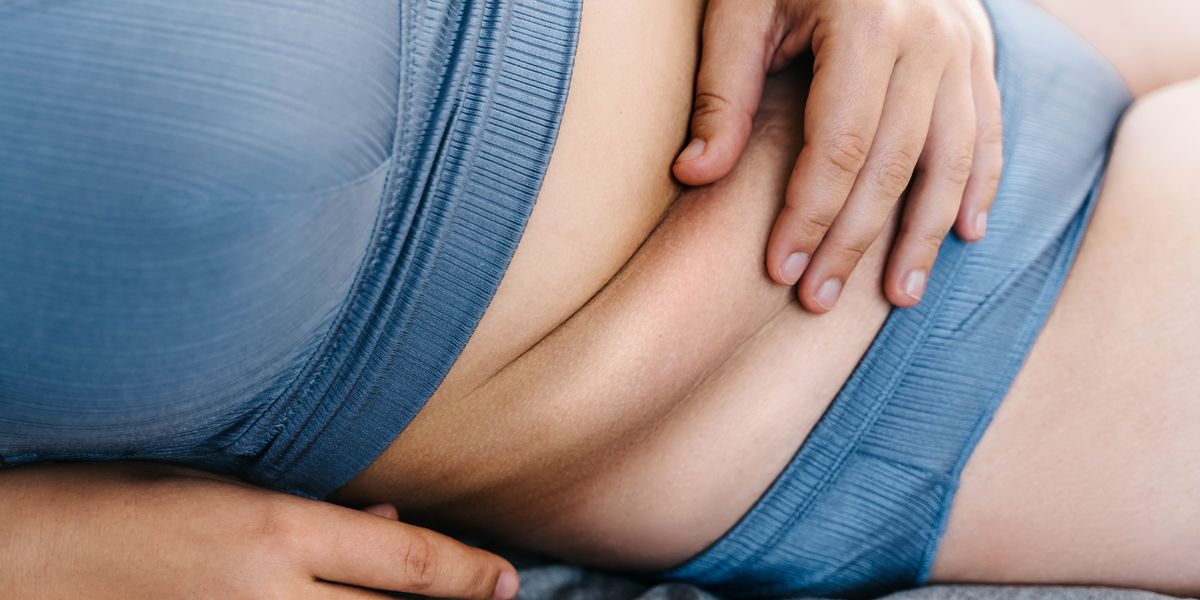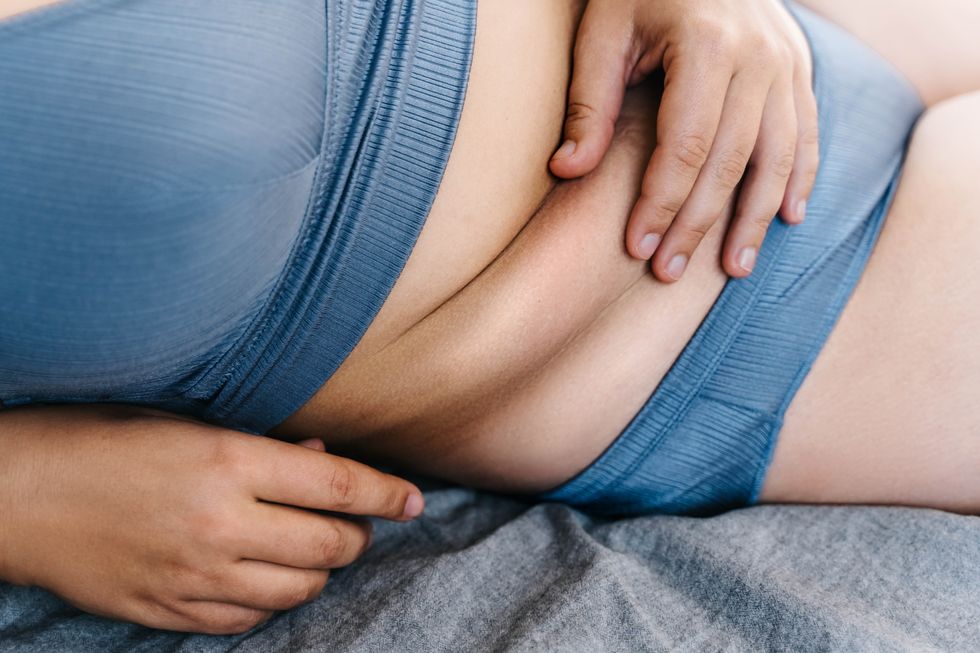



Scientists have discovered that concealed adipose tissue surrounding vital organs could be causing premature cardiac deterioration, while adipose deposits in the hip and thigh regions might offer cardiovascular protection for females.
The groundbreaking research examined how internal adipose tissue triggers inflammatory responses that potentially accelerate the ageing process.
"Our research shows that 'bad' fat, hidden deep around the organs, accelerates the ageing of the heart," shared Declan O'Regan, a professor at Imperial College London.
"But some types of fat could protect against ageing, specifically fat around the hips and thighs in women."

Visceral fat is a type of fat that is deeper inside the body
|GETTY
The findings suggest significant implications for understanding cardiovascular disease risk factors.
Researchers employed artificial intelligence technology to examine cardiac imaging data from over 21,000 individuals stored in the UK Biobank repository.
The sophisticated analysis enabled scientists to identify inflammation markers and other indicators of premature cardiac deterioration in the tissue samples.
Each participant received a calculated "heart age" based on their scan results, which researchers then compared against their chronological age to assess the extent of accelerated ageing.
The investigation uncovered distinct variations in how adipose tissue impacts cardiovascular health between males and females, revealing unexpected protective mechanisms in certain fat distributions among women that contrast sharply with detrimental effects observed in men.
The research revealed striking contrasts in how abdominal adipose tissue affects cardiac health across genders.
While this type of fat deposit was associated with accelerated cardiac ageing in males, it demonstrated protective qualities in females.
Scientists identified connections between elevated oestrogen concentrations in pre-menopausal females and decelerated cardiac ageing processes.
This hormonal factor may explain why certain fat distributions affect women's cardiovascular systems differently from men's.
The study highlighted that dangerous visceral adipose tissue remains undetectable through external observation and can accumulate substantially even in individuals maintaining healthy body weights.
These concealed deposits pose particular risks as they cannot be identified without specialised imaging techniques.
The research team intends to investigate whether pharmaceutical interventions for weight reduction could effectively address the harmful impacts of concealed visceral adipose tissue.

Becoming more active can help reduce visceral fat levels
|GETTY
"Eating a healthier diet and becoming more active can help to reduce visceral fat levels," advised Professor Bryan Williams.
While cardiac deterioration occurs naturally with age, various factors, including psychological stress, inadequate nutrition, insufficient physical activity, and hereditary or environmental influences, can accelerate this process.
This premature ageing increases susceptibility to cardiac failure, arrhythmias, and other serious cardiovascular complications.
The scientists aim to determine whether targeted pharmaceutical treatments might offer additional therapeutic options beyond traditional lifestyle modifications for managing dangerous internal fat deposits.
How to banish belly fat?
The notion that specific exercises can eliminate fat from the abdomen alone is entirely unfounded. Scientific evidence demonstrates that the human body reduces fat uniformly across all areas rather than from targeted zones.
Achieving fat reduction, therefore, requires comprehensive exercise strategies that engage the entire body through a variety of physical activities.
Those new to exercise should begin with walking, gradually increasing speed, distance and incline as their fitness improves. Basic bodyweight movements with minimal weight provide an ideal starting point for resistance work.
Fitter individuals looking to shed a few pounds may find high-intensity interval training (HIIT) pushes them harder and increases their calorie burn.
